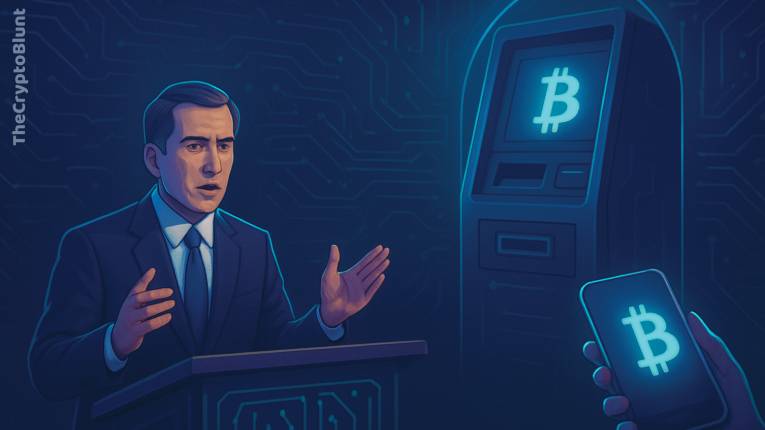In response to a report on crypto ATM fraud in Wyoming, it was asserted by Senator Cynthia Lummis that the chamber’s market structure bill could address specific risks.
A vote on digital asset market structure legislation is expected from the US Senate Banking Committee members by month’s end. A proponent of the bill has suggested that the chamber’s version could address fraud via cryptocurrency ATMs.
In a Monday X post, it was said by Wyoming Senator Cynthia Lummis that instances of fraud involving Bitcoin ATMs are among the issues she and New York Senator Kirsten Gillibrand “hope to address in market structure.”
She cited a report in which more than $645,000 in fraud was identified by the Cheyenne police department, affecting 50 instances and predominantly targeting seniors through crypto ATMs.
A law to specifically address fraud from crypto ATMs and kiosks has not been passed by the federal government. The US Federal Bureau of Investigation reported that it had received about 11,000 complaints of fraud cases at crypto kiosks in 2024, resulting in more than $246 million in losses.
A statement was issued by Lummis as the Senate Banking Committee, where she is a member, is set to vote on legislation to establish clear rules for digital asset regulation and cryptocurrency firms in the US. The Wyoming senator said she hopes the bill will be signed into law by 2026.
Its version of market structure, the CLARITY Act, was passed by the US House of Representatives in July, but the final text did not appear to mention crypto ATMs, except for automated systems in accordance with industry standards.
Crypto kiosks or ATMs were not mentioned in the latest Senate draft bill, released by Republican leadership in September.
Since the House passed the CLARITY Act in July, updates on market structure have been keenly observed by many in the crypto industry. Last week, several industry executives met with members of Congress to discuss upcoming legislation, including the market structure bill and a bill allowing the US government to hold up to 1 million BTC in a national crypto reserve.
It was signaled by Lummis’ remarks that the Senate’s version of market structure could still be fluid as of Monday. House Republicans have already voted to retroactively add a central bank digital currency (CBDC) ban to the CLARITY ACT, but the final text of the Senate bill remained unclear at the time of publication.
Not the First Time Federal Lawmakers Have Taken Aim at Crypto ATM Fraud
In February, the Crypto ATM Fraud Prevention Act was introduced by Illinois Senator Dick Durbin to tackle what he called an “alarming trend of crypto ATM fraud” in the US. The bill proposed requiring operators to warn consumers about scams and to implement measures to prevent fraud at their machines.
The bill was sent to the Senate Banking Committee and did not progress toward a floor vote.
US States and Cities Join the Trend
With no comprehensive federal legislation to address crypto ATM fraud, their own laws have been passed by many US state and local governments.
In response to a surge in scam activities, crypto kiosks and ATMs were banned in cities like Stillwater, Minnesota, and Spokane, Washington. Meanwhile, the city council in Grosse Pointe Farms, Michigan, preemptively imposed a $1,000 daily transaction limit on crypto kiosks, even though there were none in the area when the rule was passed.
Laws restricting crypto ATM activities have been passed by 13 US state governments as of August. These measures range from daily transaction limits, fraud refunds, and warnings prominently displayed on the kiosks, with registration with state authorities also being a provision.
















